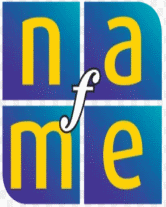Preparing for the Interview
by Edward M. Warnick
If you are called to the district for an interview, it usually means that the administration is satisfied with your experience and educational background. Most applicants called for an interview will have had similar experiences and be fairly commensurate in their academic abilities.
The candidates who have passed this initial screening obviously have an excellent chance of employment. For candidates who are equal on paper, transcripts, and experience, the interview can be the deciding factor in receiving the teaching position. Interviewing is, to a degree, like performing. Some people are comfortable and relaxed, while others are exceedingly nervous and apprehensive.
Be poised and confident. An interview entails communication between two parties. Do not allow the interview to be totally a question-answer situation. There is always an opportunity in an interview for the candidate to show creativity, enthusiasm, and scholarship. In other words, it is to your advantage to be assertive in the interview and demonstrate confidence, without interrupting the person who is asking questions.
School districts that have a music supervisor or place a music educator on the interviewing committee usually have a more extensive process of screening than those districts that just place principals or directors on the committee. If there is a music educator on the evaluating committee, your answers will have to show more depth than if you were dealing with nonmusic administrators.
Here are guidelines for preparing for a music teaching interview.
- Be assertive and express yourself. Sometimes the specific answers are not as important as the thought process the candidate uses.
- Dress conservatively and neatly.
- Be aware of music education methods, innovations, and traditional programs in general, choral, and instrumental music; and computer education, electronic music, and use of music in piano laboratories.
- Be cognizant of current music education texts, and be able to talk intelligently about them.
- Be familiar with broad educational terms such as open education, nongraded, modular scheduling, and integrated studies.
- Be able to recommend teaching materials and to explain why you would use them: music series, instrumental methods, recorder materials, ethnic materials, high-school theory texts, and music appreciation texts.
- Be able to recommend composers and compositions you might program for a choir, band, orchestra, jazz ensemble, or other group.
- Be familiar with measurement and evaluation in music. This should include both aptitude and achievement measurement and the following tests: Music Achievement Test I and II (Richard Colwell), Primary Measures of Music Audiation (Edwin E. Gordon), and the Watkins-Farnum Performance Scale.
- Be knowledgeable concerning hardware. If you were asked to recommend a piano lab for a high school, what brand and type would you select?
- Always have some questions you can ask the interviewer about the district's educational system and music program. This shows interest and concern for the system in which you wish to work. Do not hesitate to have your questions written out for use during the interview. This shows organization and planning.
Here are some examples: Have you developed a music curriculum guide and course of study? Are the elementary instrumental classes taught on a heterogeneous or homogeneous basis? What is the budget for the operation of the district music program excluding salaries?






